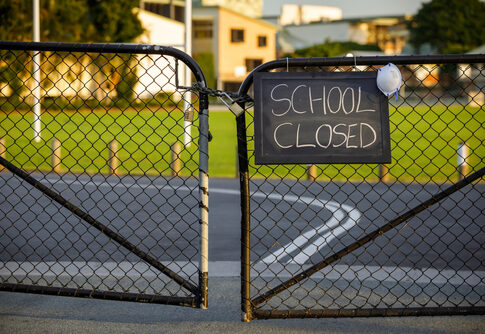The Columbine High School massacre in 1999 marked the beginning of a grim legacy of copycat violence that continues to influence societies worldwide. School shootings have increased rapidly since the attack. Has this shooting resulted in a subculture?
The 1999 Columbine Massacre
On April 20, 1999, Eric Harris and Dylan Klebold launched a deadly attack at Columbine High School, resulting in 13 fatalities—12 students and one teacher—and injuries to 24 others before they ended their lives. This tragic event was the deadliest school shooting in the United States at that time and soon became a disturbing benchmark for similar future acts of violence. It casts a long shadow over the nation, symbolizing the potential for school environments to become unsafe.
The shooting’s coverage in the digital age was amplified by the perpetrators’ chilling home videos and manifesto. These elements fueled infamy and encouraged potential copycat actions, cementing Columbine’s impact beyond national borders. The subsequent adoration by “Columbiners,” an unsettling subculture of over 70,000 individuals fixated on the shooters, and their violent ideologies further highlighted a need for a comprehensive societal and community response.
On April 20, 1999, a tragic shooting and a foiled bombing occurred at Columbine High School in Columbine, Colorado. Images captured before the chaos show William “Dave” Sanders leading more than 100 students from the cafeteria to safety.
Although he successfully saved these… pic.twitter.com/NwIcYYsc67
— Fascinating (@fasc1nate) December 10, 2023
The Ripple Effect of Columbine
The influence of Columbine extended well beyond American borders, inspiring over 50 fatal ‘copycat’ shootings in countries including Russia, Germany, Finland, and Canada. Repercussions were also deeply felt in the United States, as it gave way to 32 fatal school shootings, some among the deadliest in the country’s history. The massacre has been referenced in various court documents, underscoring its impact on subsequent violent incidents.
The tragic narratives of shooters, such as Seung-Hui Cho of the Virginia Tech massacre and Adam Lanza of the Sandy Hook tragedy, reveal a disturbing sense of admiration for the Columbine perpetrators. Seung-Hui Cho’s declaration to “repeat Columbine” is a stark reminder of the massacre’s debilitating influence.
Since the 1999 Columbine High School massacre, 388 deadly school shootings have claimed at least 526 lives in the country. Despite countless "thoughts and prayers," the U.S. has yet to find a solution. pic.twitter.com/eM1405TVWb
— CBS Evening News (@CBSEveningNews) September 5, 2024
Community Response and the Path Forward
The tenacity of the Columbine legacy necessitates sustained community engagement and mental health interventions to prevent susceptibility to such destructive behavior. Educational institutions have since prioritized improving security measures and fostering environments focused on identifying and supporting at-risk individuals.
Virginia Tech shooter Seung-Hui Cho’s stark words to “repeat Columbine” resonate today and highlight the urgent need for proactive measures across communities to address these dark fixations with violence effectively.
While significant strides have been made in crisis response, recognizing mental health red flags, and raising awareness, the continued drive to understand and counteract the disconcerting allure of Columbine remains imperative. Only through concerted efforts can we hope to diminish the harrowing cycle of violence catalyzed by April 20, 1999.


